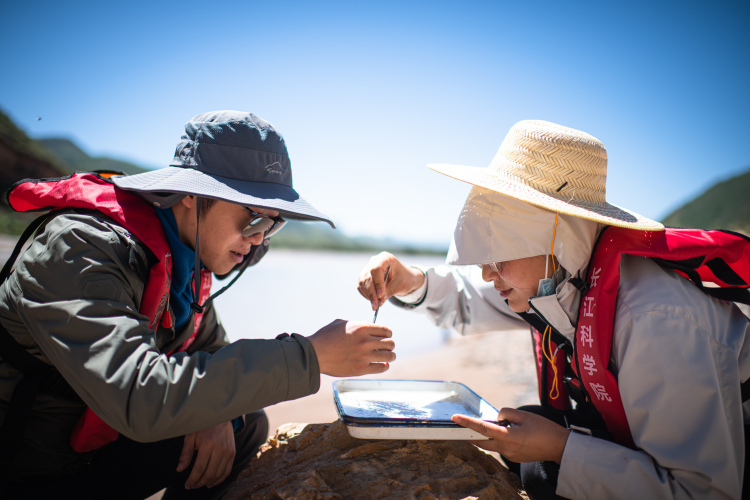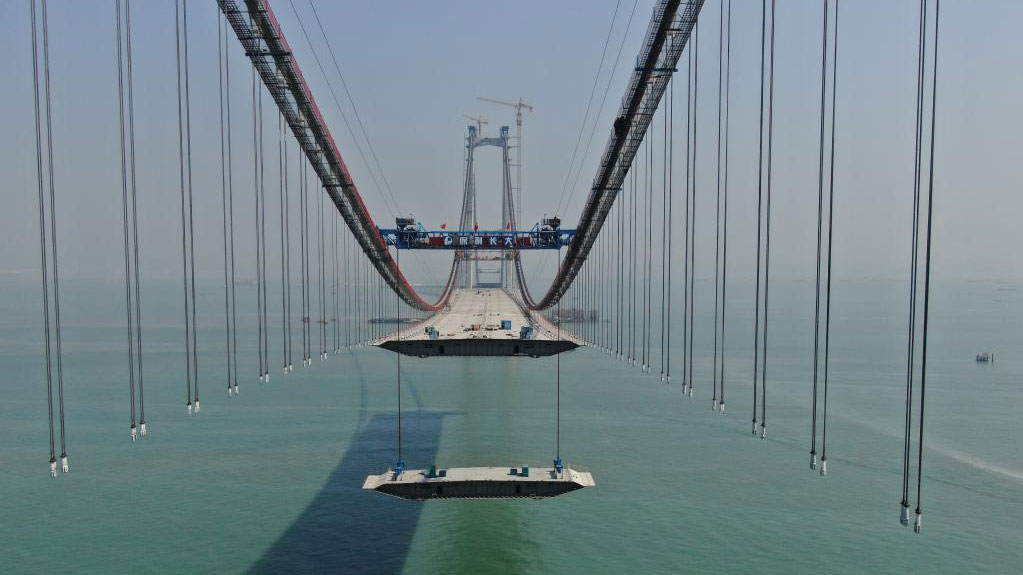Sci-tech opening-up, cooperation pushed

Li Ludan (R) and Liu Han, members of a scientific expedition team, conduct benthonic animal samples from Zaqu River in the headwater region of the Lancang River in Northwest China's Qinghai province, July 24, 2022. [Photo/Xinhua]
China will expand opening-up and cooperation in science and technology and foster an internationalized research environment and a globally competitive innovation ecosystem, according to the Ministry of Science and Technology.
Artificial intelligence will be one of the fields in which China will proactively participate in international collaboration and governance, the ministry said, adding that it will continue to support basic research, commercialization and ethical use of AI technology as a new strategic industry.
From 2012 to 2022, China's science and technology development had seen profound changes, making it the fastest-growing decade for the nation's sci-tech sector in history, Wang Zhigang, minister of science and technology, said during a news briefing hosted by the State Council Information Office on Friday.
Since 2012, China has climbed 23 spots to take 11th place on the Global Innovation Index 2022, published by the World Intellectual Property Organization.
China's gross domestic expenditure on R&D reached 3.09 trillion yuan ($449 billion) last year, surpassing the 3 trillion yuan milestone for the first time. Last year, it spent 195.1 billion yuan on basic research, nearly four times higher than the 49.9 billion yuan budget in 2012.
Last year, the number of high-tech companies increased to 400,000 from 39,000 in 2012, and the country had 762 companies listed among the world's top 2,500 R&D spenders.
As for international cooperation, China has established collaboration agreements with over 160 countries and regions and has participated in over 200 global organizations and multilateral mechanisms.
Climate change, clean energy and tackling the COVID-19 pandemic were some of the critical areas of international cooperation for China, Wang said. Chinese scientists have also played an active role in global scientific projects such as the International Thermonuclear Experimental Reactor and the Square Kilometre Array.
"Open cooperation is an intrinsic requirement for scientific and technological progress and a necessary condition for jointly addressing global challenges," Wang said.
"We will continue to uphold the principle of openness, inclusiveness, sharing and mutual benefits during international collaboration and help turn China into a fertile ground for global innovation."
Chen Jiachang, director of the Department of High and New Technology of the Ministry of Science and Technology, said that AI, as a strategic emerging technology, has increasingly become a key driving force for technological innovation, upgrading industries and increasing productivity.
ChatGPT and other AI tools based on natural language processing have great application potential in many sectors and fields, he said.
However, the technology has prompted some debate as some have been caught using it to cheat on academic assignments or to generate malicious content. As a result, scientists and tech companies worldwide are closely monitoring how nations regulate ChatGPT-like technology.
Chen said that China has attached great importance to the development and governance of AI technologies, with the State Council — China's Cabinet — issuing an AI development plan in 2017. Two years later, China issued new guidelines on AI governance and ethical codes.
China will continue to provide vital support to AI technology as a strategic emerging industry, build an AI innovation ecosystem that is open and collaborative, and enhance research in fundamental theories and critical technologies, he added.
Meanwhile, Chen said that China will facilitate a safe and controllable governance system for AI and promote international cooperation on the subject.
Wang said that technology can be something that offers benefits as well as drawbacks, and these guidelines aim to maximize the potential and benefits of science and technology while minimizing any negative impacts.
Zhang Guangjun, vice-minister of science and technology, said China would proactively participate in the global governance of science and technology and contribute Chinese solutions and wisdom to addressing shared challenges.
Photos
Related Stories
Copyright © 2023 People's Daily Online. All Rights Reserved.









